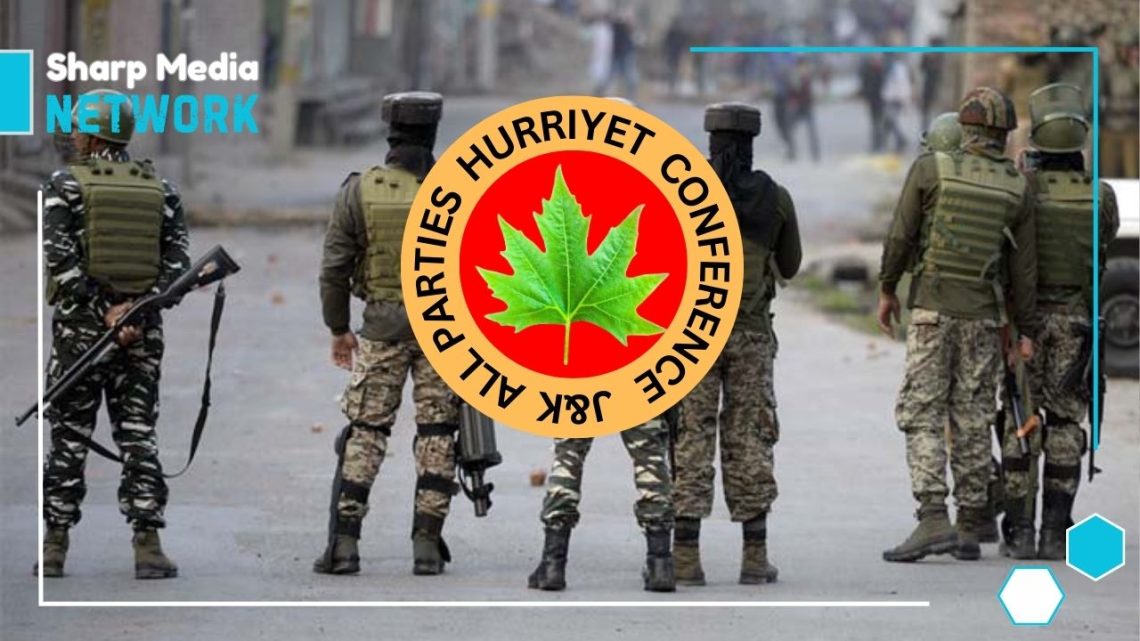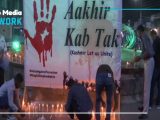
APHC Voices Deep Concerns Over New Black Laws in IIOJK and Threat to Muslim Majority Status
February 20, 2025The All Parties Hurriyat Conference (APHC) has raised alarm over the latest draconian laws imposed in IIOJK, warning that these measures threaten the region’s Muslim majority status and curtail basic freedoms.
The All Parties Hurriyat Conference (APHC) has strongly condemned the recent criminal laws imposed by Indian Home Minister Amit Shah in Indian Illegally Occupied Jammu and Kashmir (IIOJK), citing their potential to severely undermine the region’s rights and autonomy. APHC spokesman Adv Abdul Rashid Minhas expressed deep concern over the rising restrictions on freedom of press and political activities in IIOJK, which have escalated under the governance of Lieutenant Governor Manoj Sinha, appointed by the Bharatiya Janata Party (BJP).
Minhas accused the Indian government of using “black laws” to silence opposition and exert control over the region. He highlighted that these measures are being enforced through heavy-handed tactics, including the use of military force, and are part of a broader agenda to diminish the rights of the local population. The APHC spokesman emphasized that these laws aim to gradually erase the Muslim-majority status of IIOJK, making way for demographic changes that align with India’s political objectives.
For the past six years, the Modi government has increased efforts to alter the demographic makeup of IIOJK. Since the controversial revocation of Kashmir’s special status in August 2019, New Delhi has introduced a series of laws aimed at diluting the protections afforded to the people of the region. These include new domicile rules, media restrictions, and significant changes to land ownership laws, which critics argue are designed to open the door for non-local settlers to alter the region’s social fabric.
These legislative changes have been widely viewed as part of a deliberate strategy to reduce the political and cultural influence of the Kashmiri Muslim population, according to the APHC. By implementing such policies, the government has effectively undermined the safeguards that once protected the interests of the local people. The changes to land and domicile laws are seen as particularly alarming, as they potentially allow outsiders to claim property rights, further eroding the region’s distinct identity.
The APHC also voiced concern over the plight of Hurriyat leaders and activists who continue to languish in Indian prisons. Many of these individuals, who have long advocated for the self-determination of Kashmir, are being held without trial in some of India’s most notorious detention centers. The APHC has condemned this inhumane treatment and called for their immediate release, demanding that the international community take action to address these human rights violations.
The detained leaders are seen as political prisoners, their continued imprisonment viewed as an attempt to silence dissent and prevent the formation of any organized resistance to India’s policies in the region.
In light of these developments, the APHC has appealed to the United Nations to intervene and prevent the Modi government from executing its demographic alteration agenda in IIOJK. The organization has called on the global community to take stronger measures to hold India accountable for its actions and to protect the rights of the Kashmiri people.
The situation in IIOJK remains tense, and the people of the region continue to face unprecedented restrictions on their freedoms. As the Indian government intensifies its efforts to reshape the region, it is clear that the struggle for the rights and self-determination of the Kashmiri people is far from over.
The imposition of black laws in IIOJK represents a significant step towards consolidating India’s control over the region, but it also highlights the growing resistance from the people of Kashmir and international organizations like the APHC. The ongoing efforts to alter the demographic composition and suppress political dissent have raised alarms worldwide. As the situation continues to unfold, the call for international intervention becomes even more urgent to protect the rights of the people of Indian Illegally Occupied Jammu and Kashmir.

